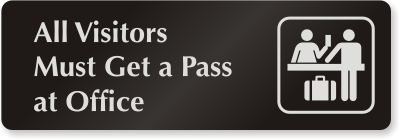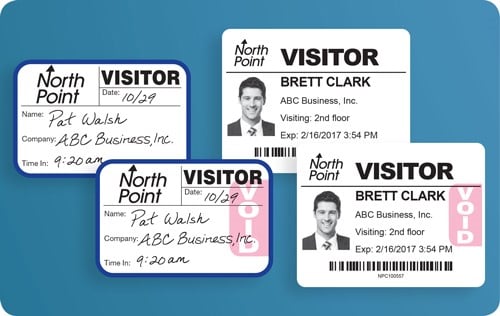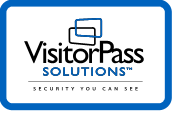Blog
9 affordable small business security tips
by Paul Kazlauskas

Running a small business is not easy. Whether your company has 5 or 50 employees, there are so many aspects of the business to keep tabs on. Office security is one of the issues that you have to pay attention to. It can be tough to find money to spend on office security within a small-business budget. However, security doesn’t have to be expensive. By applying the measures mentioned below, you can improve overall office security. Furthermore, all the items mentioned do not require a big budget.
1. Require all visitors to the facility wear visitor badges.
All visitors coming to a facility should be tracked and identified. Whether you use a manual sign-in system or an electronic visitor management system, it is critical to have a record of all visitors. In addition, it is important to require visitors wear a badge identifying them. Ideally, the best practice is to print a badge that contains the visitor’s picture using an electronic visitor management system.
2. Only invited guests should be allowed access to the building.
Unannounced guests should not be granted permission to access a building. Many times, unannounced guests are solicitors or salespeople that essentially waste an employee’s time. If a salesperson wants to meet with an employee, it is up to the employee to approve a meeting and let the reception desk know that they are expecting a visitor. Additional inexpensive physical security tools can be implemented to block unannounced guests. These include electronic door locks, RFID tags, and a security guard to patrol the lobby and office grounds.
3. Don’t leave office guests unattended.
Legitimate office guests include clients, contractors, vendors, and maintenance personnel. As long as they have a legitimate reason for being there and are received by an employee, these guests should be welcomed. However, upon entering the facility, they should be escorted to the area/people that they are there to see. After their meeting or work is complete, the office guest should be escorted out of the building.
4. The parking lot and building exterior should be well-lit at night.
Provide proper lighting to areas of the office campus where employees have to walk. Proper lighting provides safety for employees who have to walk to their cars after dark. During the winter months, many areas of the U.S. are dark outside before the typical 5pm close to the business day. In addition, those winter months can lead to hazardous sidewalk conditions if any frozen precipitation had fallen. A well-lit walkway will help people stay safe.
5. Lock up valuable assets.
When you leave your office for the day (or even step away from your desk for a few minutes), be sure that your computer is locked and any confidential papers are out of sight. Confidential papers that are no longer needed should be shredded. If you opened a window during the day, make sure it’s locked upon leaving.
6. Place security cameras within and outside of the facility.
Security cameras on the outside of an office building are a great idea. They should be strategically placed to maximize the view of each camera and cover the important areas. Security cameras within the facility don’t need to be as all-encompassing as the exterior (depending on your type of business), but at least one should be placed to monitor the front door.
7. Protect passwords.
Keep your computer passwords safe by not lending them to anyone. Whether it be access to a computer or to a web site, passwords can be misused and you don’t want to be held responsible for someone else’s actions. It is also a good idea to never email passwords because email isn’t a secure way to exchange information. Protect passwords like you would a credit card number.
8. Create a company policy that prevents employees from working alone in the office at night.
Ensure nobody works alone at night. If the scenario is unavoidable, emphasize the importance of keeping the front door locked and have all the lights on.
9. Call security/police if you notice anything out of the ordinary.
If you see something out of the ordinary, it is never a good idea to “hope for the best”. If you see something, say something to security personnel. Some employees may think they are bothering the security department if they call them and a situation turns out to be benign. Security personnel are there to make sure the building is safe and secure. It is a good idea to call them even if the outcome is a false alarm. If your facility doesn’t have a dedicated security department, the police department would be the next logical choice.
What other affordable security ideas can you contribute that would help small business security? Please add your thoughts in the "Comments" section below.
Our visitor badges “VOID” overnight to prevent reuse. 
See them for yourself — request free samples!
Posted on 1/13/2016



 Paul Kazlauskas
Paul Kazlauskas
 Andrew Jones
Andrew Jones